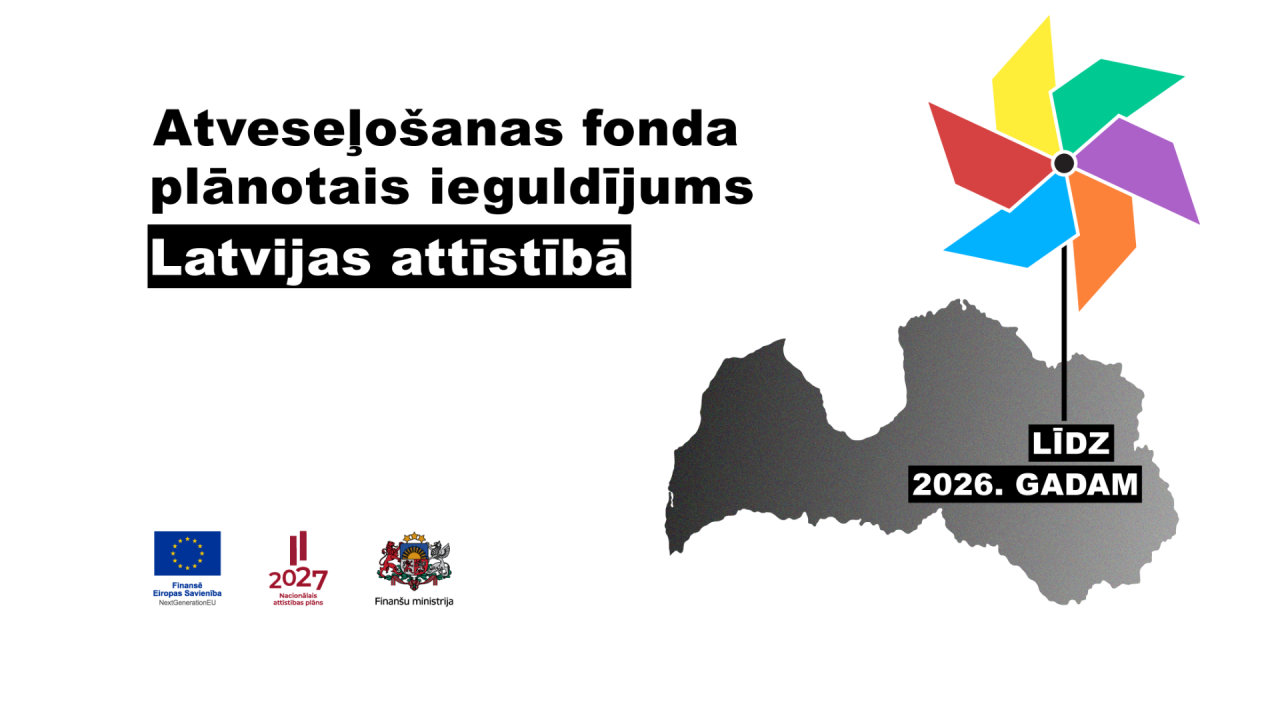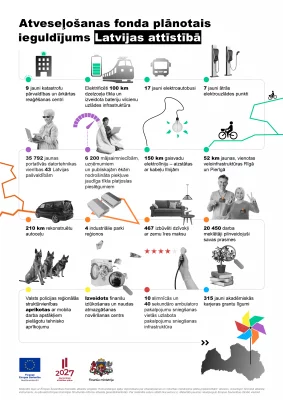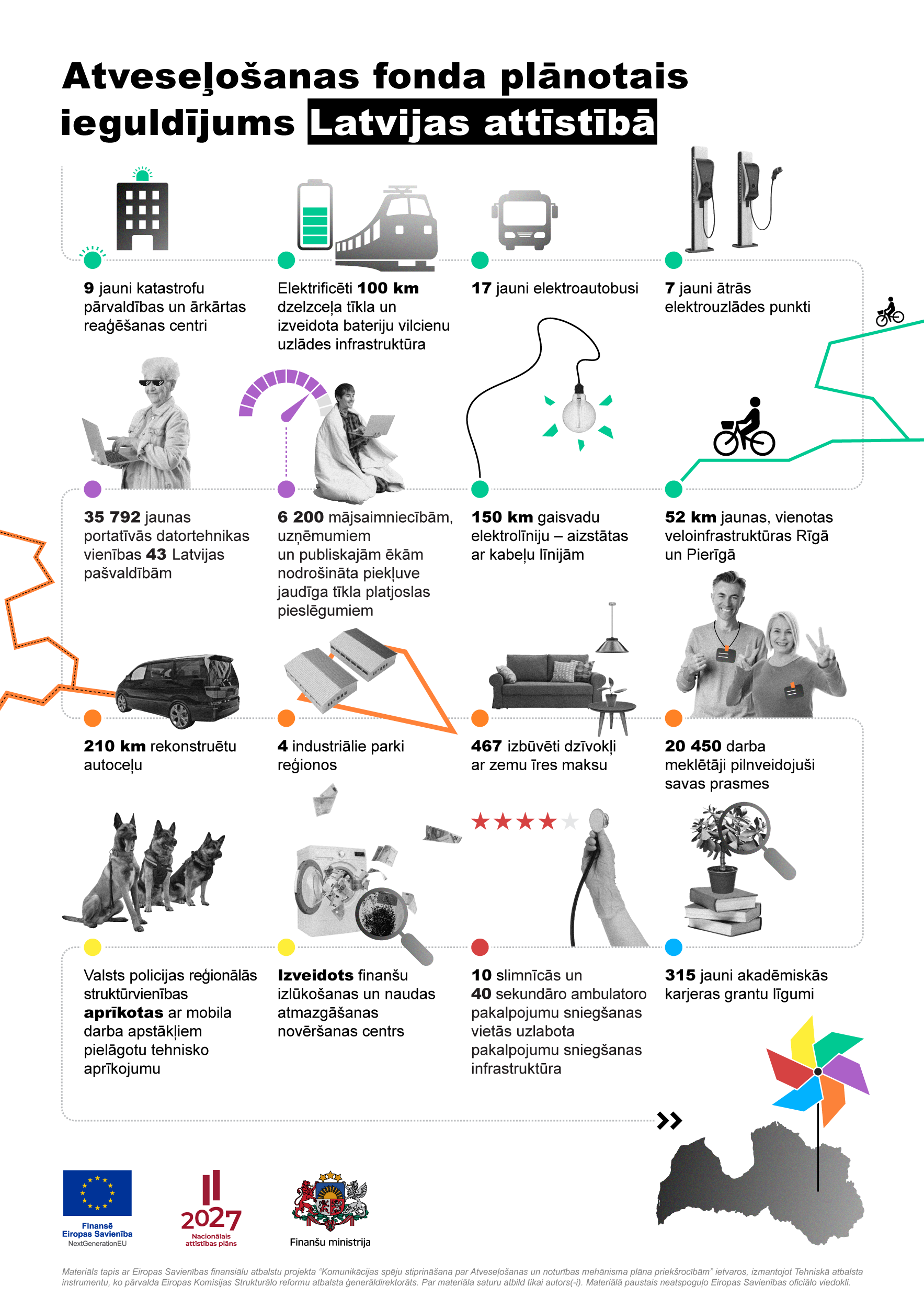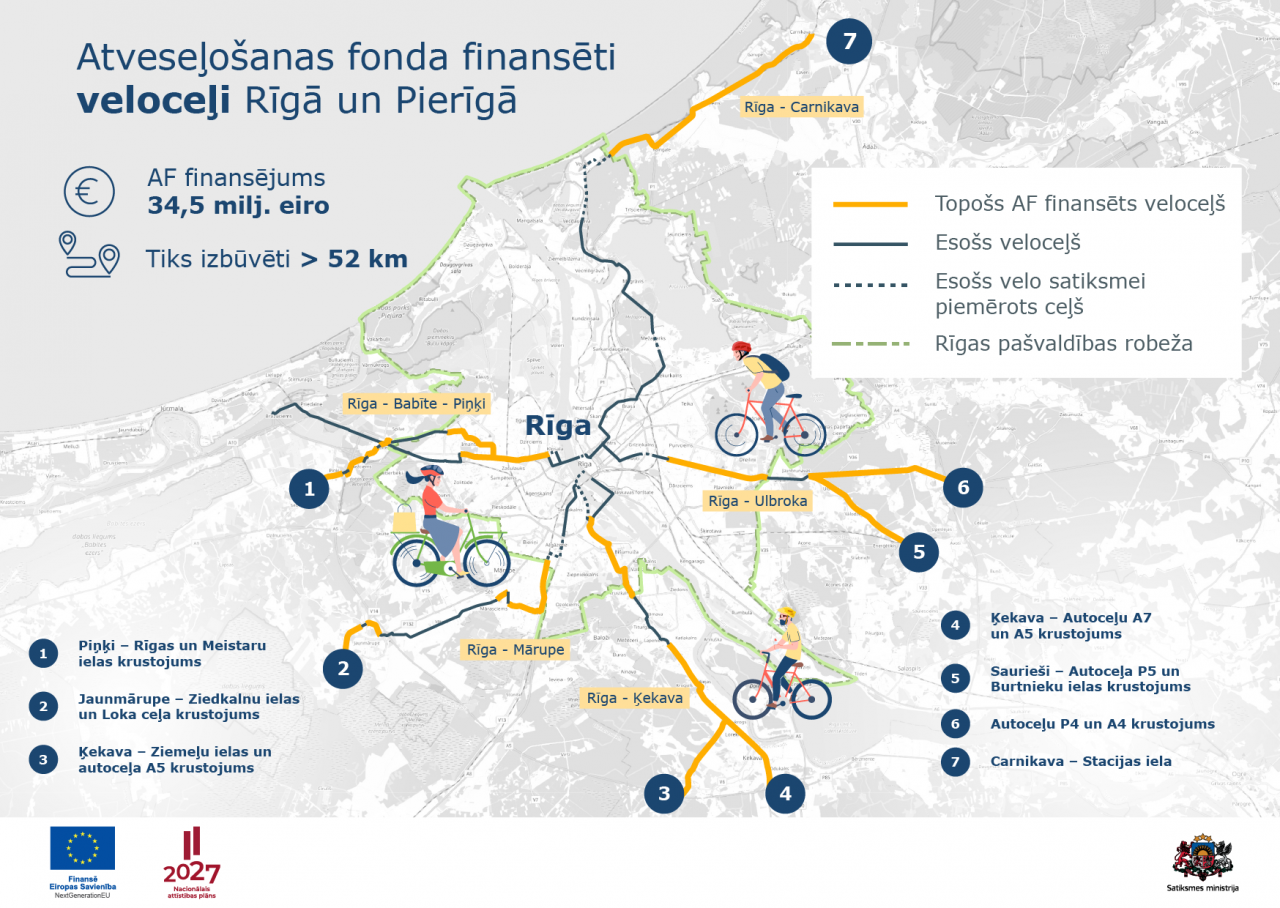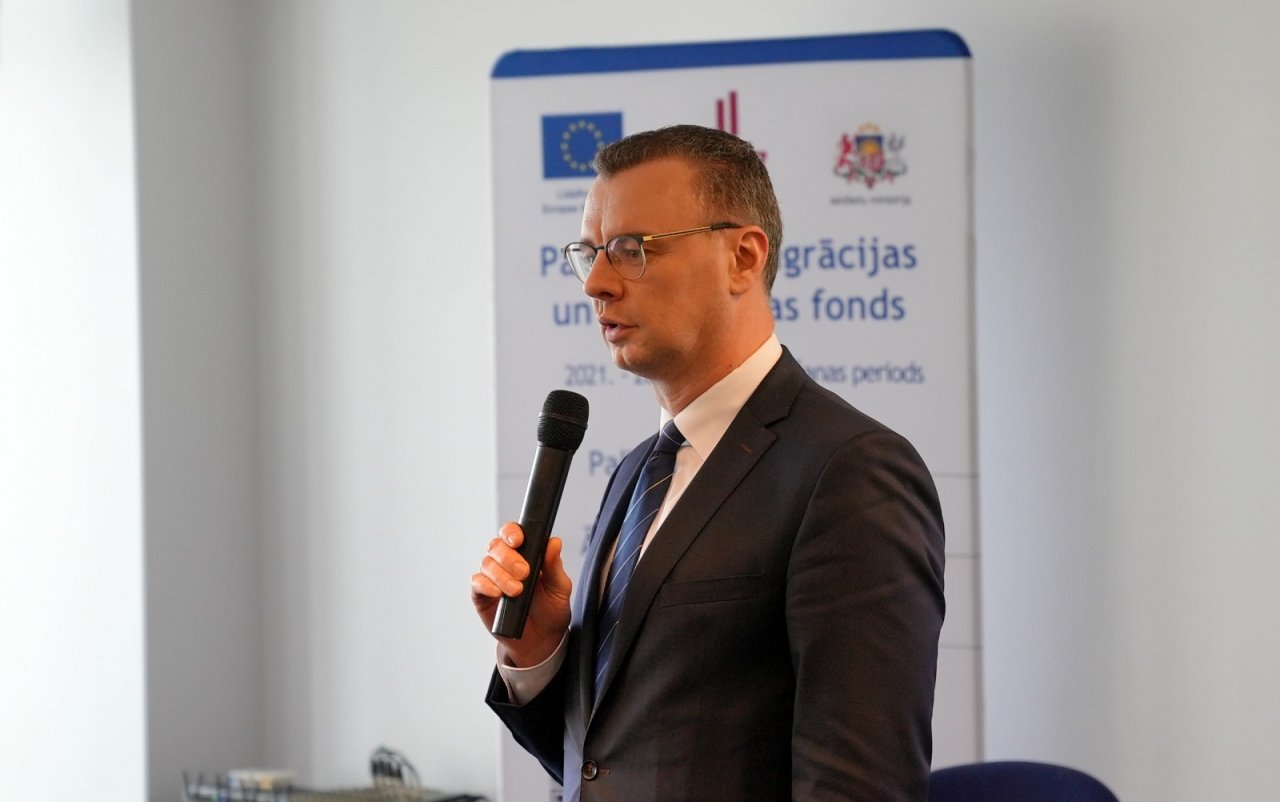With the financing of the European Union Recovery Fund, reforms and investments are expected to be made to improve six development areas: climate and energy, digital transformation, reducing inequalities, strengthening the economy and health sectors, and strengthening the rule of law. By the end of 2026, 1.97 billion euros are expected to be invested in the operational areas.
Almost half of the funding - €810.9 million - is intended for the achievement of climate goals and the transformation of the energy sector. The funding will be used to strengthen Latvia's electricity grid infrastructure by replacing power lines with cable lines, electrify rail networks, purchase electric buses and fast charging points, and build new cycling infrastructure in Riga and the Baltic Sea Region to promote more environmentally friendly transport choices. Latvia's digital transformation will involve €365.3 million to improve infrastructure, with municipalities purchasing new portable computing units, as well as improving digital skills for citizens and public administration staff, while also providing access to more powerful broadband internet.
With the 378.5 million euros for reducing inequality, regional highways will be reconstructed, industrial parks will be created in the regions, new rental apartments with lower rent will be built, and the improvement of professional skills of job seekers will be promoted. By investing 196 million euros in strengthening the economy, with the support of the Recovery Fund, the development of innovations and the improvement of the quality of education in Latvia will be promoted, supporting the higher education sector and providing opportunities for new academic career grant agreements.
In the health sector, the availability and quality of services will be promoted by improving the service provision infrastructure and making services more convenient and accessible for both patients and staff - 181.5 million euros have been allocated for this direction. In order to make Latvia legally stronger, with the support of opportunities provided by the Recovery Fund, state administration employees will be trained, a financial intelligence and money laundering prevention center will be established, the investigation of economic crimes will be improved, as well as regional units of the State Police will be technically equipped, allocating 37 million euros for this direction.
The European Union's Recovery Fund aims to help Member States recover more quickly from the effects of the Covid-19 pandemic and Russia's hostilities in Ukraine. At EU level, €723 billion is earmarked for Member States.
About EU's Recovery and Resilience Facility
The Recovery and Resilience Facility is a centrally managed budget programme of the European Commission, set up in addition to the Multiannual Budget of the European Union for the programming period 2021-2027. It aims to support reforms and investments related to the transition to a green and digital economy and to mitigate the social and economic impact of the crisis. With The Recovery Fund €1.97 billion will be invested in Latvia's economy by the end of 2026, through reforms and investments in all six of the Recovery Fund's strands: Climate and Energy (including REPowerEU), Digital Transformation, Reducing Inequalities, Economic Transformation, Health and Rule of Law.
The reforms and investments of the Recovery Fund in Latvia are financed from the budget funds of the European Commission Recovery and Resilience Facility, with co-financing from the state budget.
More information: esfondi.lv
This material has been produced with the financial support of the European Union within the framework of the project "Strengthening Communication Capacity on the Benefits of the Recovery and Resilience Facility", through the Technical Assistance Instrument managed by the European Commission's Directorate General for Structural Reform Assistance. The sole responsibility for the content of this document lies with the author(s). The contents do not reflect the official opinion of the European Union.
